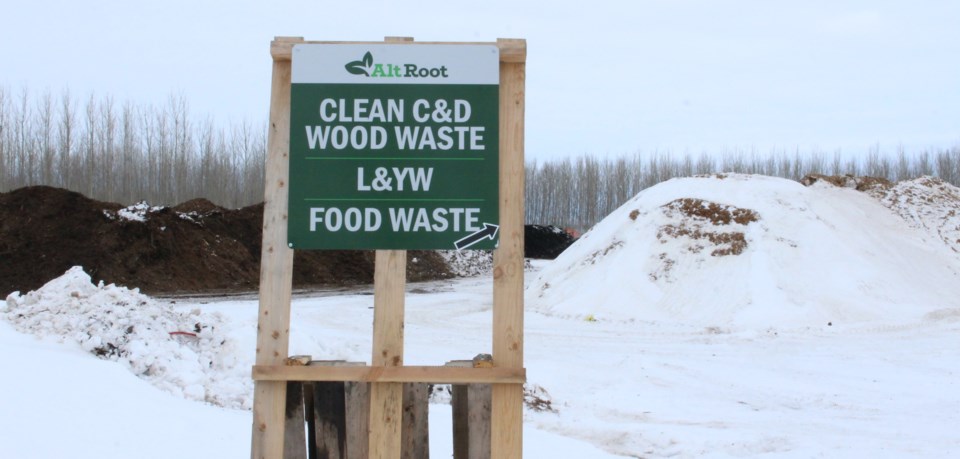WESTLOCK – During the Jan. 19 Westlock Regional Waste Management Commission meeting held via Zoom, the commission was approached by AltRoot Compost which requested and received approval for an expansion of its services at the Westlock Regional Landfill.
AltRoot is a compost organization that takes organic waste and breaks it down into a natural, organic compost that is provided to producers to use in their fields. The program entered a partnership with the commission to help keep organic waste out of the landfill, saving much-needed space while providing local producers with another option for fertilizer.
Currently, the operation processes 20,000 tons of organic waste each year but hope to go beyond that. In order to do so they needed permission from the commission to begin expanding their services, which will require about three and a half acres of space.
Out of the 20,000 tons, 10,000 tons of fertilizer is produced with around five per cent of the waste being contaminated and unable to be processed.
“Over the past year we’ve been told by so many people that this capacity restraint is getting worse and worse,” said AltRoot representative Brian Wonnacott. “There is an opportunity to do a service to our province and region to do this duty.”
In a PowerPoint presentation, Wonnacott showed the commission how their composting process works. The process begins with aerators laid underneath organic waste, the waste is then covered with fully composted fertilizer to help with the decomposition process by trapping heat and preventing any smell. On average, the internal temperature of the compost piles remains around –30 C even in the middle of winter.
“We have put in processes to manage and process this specific waste in a way that it makes it easy and economical to process,” Wonnacott said. “We’ve designed it to be simple and efficient.”
By expanding operations, Wonnacott said AltRoot can provide more compost for producers while bringing in more vehicles to drop off waste. The site sees between three and five semi-trucks full of waste a day, netting the landfill $10 for each truck with weighing costs.
Landfill to reopen five sealed cells
A motion was passed to take out a $175,000 loan over seven years to begin work on reopening five cells in the landfill.
Cells are pits dug and filled with waste then covered once full, however commission manager Tom Moore said that by reopening five pits they can add roughly five metres of waste to each cell. The current pit only has a year or two left until it is filled, and to dig a new one would cost around $350,000.
By doing a height adjustment to five sealed cells, an additional six to seven years will be added to the lifespan of the landfill before more cells are needed to be made. Over the next decade-and-a-half Moore anticipates saving around $1.5 million with this work.
“To me financially it’s a no brainer,” said Moore.
The cost of opening the cells will total around $60,000 to $70,000 with the remaining money going towards a 600 foot long 25-foot-tall fence on the southern side of the landfill and portable fences to keep waste from being blown from the site and into surrounding fields.



